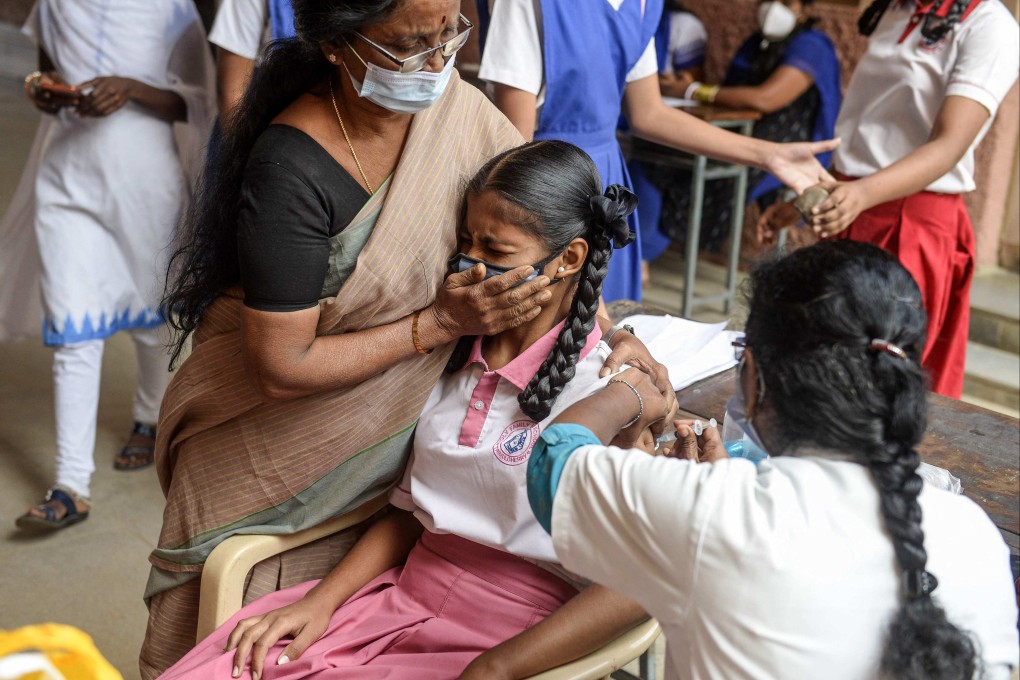India’s Covid-19 cases hit 7-month high as Omicron sweeps through Delhi and Mumbai
- Cases have risen 11-fold in two weeks with over 80 per cent of cases in Delhi and Mumbai involving Omicron
- Experts hope that after the deadly Delta wave, people have gained additional immunity and India’s experience will mirror South Africa’s, where cases have declined

Cases have risen 11-fold in just two weeks. The R0 value that indicates the spread of the infection is already 2.69 higher, than the 1.69 recorded at the peak of the second wave.
“The pandemic is expanding and the surge is exponential,” said Balram Bhargava, who heads the state-run Indian Council of Medical Research.

More than 80 per cent of the cases sequenced in the Delhi capital region and financial centre Mumbai now involve the highly infectious Omicron variant, which is increasing as a proportion of infections nationwide, said Anurag Agrawal, head of India’s genomics institute.
The good news is that not many people falling sick are needing medical treatment and most are recovering more quickly than in previous waves. Nearly 70 per cent of Indians had been exposed to the coronavirus by the middle of last year, while 64 per cent of adults have been fully vaccinated as of this week.
In Mumbai where the city hit a single-day pandemic record of 20,181 new infections on Friday, only five per cent of the patients have required medical help.